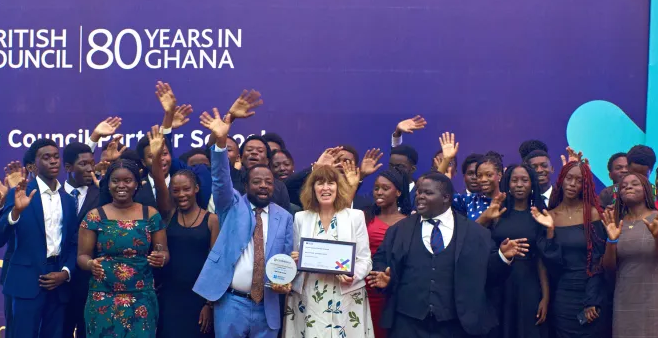Parents and Educators Learn Strategies to Support Dyslexic Students

- There's a significant lack of understanding about dyslexia.
- Dyslexic students often face challenges due to misconceptions about their condition.
- Dyslexic students often face challenges due to misconceptions about their condition.
- Many successful people have dyslexia, dispelling the myth of limited potential.
A four-day training program aimed at empowering educators, parents, and other stakeholders with effective strategies to support dyslexic learners has commenced in Accra. The program, designed to provide the latest evidence-based approaches, seeks to enhance the learning experiences of children with dyslexia.
The Africa Dyslexia Organisation has launched a four-day training program in Accra aimed at equipping educators, parents, and other stakeholders with the tools to support dyslexic learners. The initiative is part of the organization’s broader mission to provide comprehensive resources and support for individuals with dyslexia across the African continent.
A Deputy Minister of Education, Rev. John Ntim Fordjour, has commended the Africa Dyslexia Organisation for organising a training program to equip educators and parents with the necessary skills to support dyslexic learners. Speaking at the opening ceremony, the Minister emphasized the government’s commitment to partnering with the organization to raise awareness about dyslexia, a learning condition that affects reading and writing.
Deputy Minister of Education, Rev. John Ntim Fordjour, has underscored the importance of raising awareness about dyslexia. He noted that a lack of understanding of the condition often leads to frustration among parents and teachers when children struggle with reading. These caregivers, he said, mistakenly attribute the challenges to a child’s intelligence, rather than recognizing it as a learning difficulty.
“There is not much awareness and that’s what we seek to bring to the fore,” the Deputy Minister emphasized. He added that once there is increased awareness, appropriate interventions can be put in place to support dyslexic learners
Rosalin Abigail Kyere-Nartey, Founder of the Africa Dyslexia Organisation, described the training program as a crucial step forward in the organization’s mission to support individuals with dyslexia across Africa. The workshop, she explained, aims to equip educators with a deep understanding of dyslexia, including its neurological underpinnings and its impact on learning.
By learning and applying evidence-based teaching methods tailored to the specific needs of dyslexic students, educators will be better prepared to create inclusive classrooms that foster the success of all learners. Ms. Kyere-Nartey highlighted the importance of professional development in this area, emphasizing the opportunity for educators to earn credits and enhance their special education credentials.
Addressing the broader issue of dyslexia, the Founder stressed the need to bring parents and educators together to learn about supporting children with this learning condition. She pointed out that the lack of awareness surrounding dyslexia often leads to misconceptions about struggling students, who are frequently labeled as lazy or unintelligent.
Rosalin Abigail Kyere-Nartey, founder of the Africa Dyslexia Organisation, highlighted the importance of the training program in addressing the challenges faced by dyslexic learners. She emphasized that many successful individuals, including Albert Einstein, Muhammad Ali, Okyeame Kwame, and Archbishop Nicholas Duncan Williams, have dyslexia.
Kyere-Nartey explained that the lack of awareness about dyslexia often leads to misconceptions about struggling students. “Because people don’t understand the condition, they misinterpret the challenges faced by dyslexic children,” she said. “They are often labeled as lazy or dull.”
The organization’s decision to bring together parents and educators from both public and private schools was driven by the need to equip them with the knowledge to support dyslexic children. “We want to provide them with a comprehensive understanding of dyslexia, its signs, symptoms, and effective teaching strategies,” Kyere-Nartey added.
“There is not much awareness and that’s what we seek to bring to the fore,” the Deputy Minister emphasized. He added that once there is increased awareness, appropriate interventions can be put in place to support dyslexic learners.
Rev. Fordjour also revealed that the Ministry of Education is currently undergoing a review of its inclusive education policy to ensure that all children, including those with dyslexia, are catered for.
The organization’s decision to bring together parents and educators from both public and private schools was driven by the need to equip them with the knowledge to support dyslexic children. “We want to provide them with a comprehensive understanding of dyslexia, its signs, symptoms, and effective teaching strategies,” Kyere-Nartey added.






